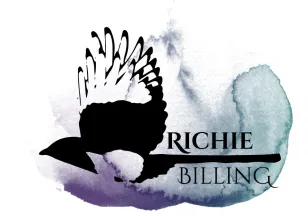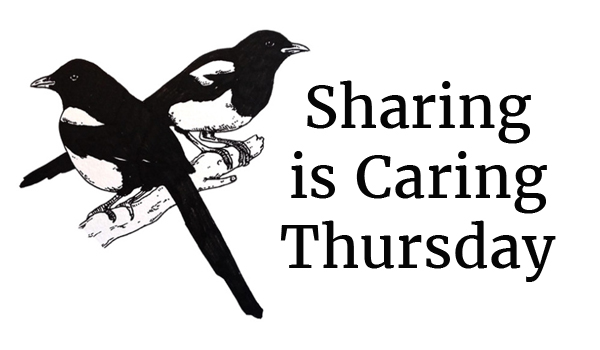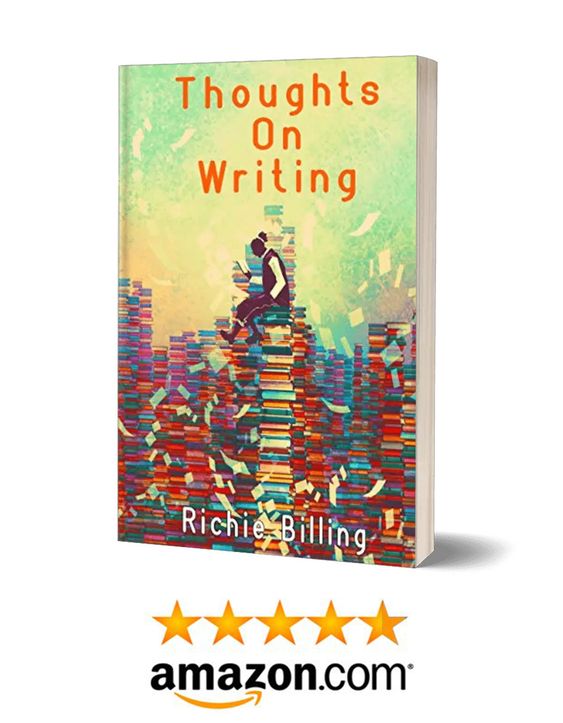Another collection of tremendous articles for you today, featuring one of the best I’ve ever read: what editor’s want, how authors can take advantage of ebook piracy, up-lit, and three writing tips to always bear in mind. Enjoy!
Authors Can Take Advantage of eBook Piracy via YouTube Videos
By Michael Kozlowski
Ebook piracy is rife at the moment. Not long ago I read a thread on Reddit about a writer who was considering giving up the profession because of the detrimental and disenchanting impact piracy had on her sales. And who can blame her?
The TV, music and film industries have been trying to combat torrents ever since they came about, with little success despite their financial might. What can an underpaid author do to combat it?
This article by Michael Kozlowski provides one possible solution.
“One of the ways authors can combat piracy is to upload half of their book to a torrent site in a PDF and monetize it with Amazon Affiliate links, a live widget for their Patreon page and an embedded video via YouTube.”
If you can’t beat them, join them. Sort of.
Michael goes on to discuss the successes ‘booktubers’ have had on Youtube. They record themselves reading out the first chapter or so, even the whole book, which can then be embedded into an ebook. Not only will you earn money from Youtube for producing original content, but those pesky pirates will watch your video within the pirated ebook and see the impact their action is having. You never know, it may sway them into forking out the few quid for your book.
On the other hand, those who download torrents are used to getting things for free. There’s nothing stopping them from waiting for some arsewipe to upload the full manuscript, but efforts must be made to address the issue, and this one might work.
Have you suffered at the hands of book piracy? I’d love to hear your views.
“Up-Lit” – What is it? and why do we like it?
By Lynne, a.k.a. Fictionophile
A few weeks ago, a good writing friend of mine, Caroline, told me about a new trend in fiction called ‘up-lit’. What’s up-lit? According to Lynne, aka Fictionophile:
“Up Lit focuses on human connections and life-affirming stories filled with joy, kindness, humor, heroism, hope, empathy, compassion and love…Up Lit is simply modern literature with the power to remind ourselves of – and celebrate! – some of the many joys to be found in our human existence.”
In her insightful article, Lynne points out that up-lit is nothing new, rather a re-invention of something that’s always been available in fiction. Stories of hope and optimism, of standing up to evil and facing adversity head-on.
You can see where this trend has come from. It’s fair to say the world at the moment is pretty bleak, with genocides, environmental disasters, threats of war, and racism on the rise. It’s natural for people to want to escape to happier places and engage in stories which make them feel better.
I lean toward the bleaker side of things, but as Lynne says in her article, up-lit can still feature the darker side of life, provided the ending is uplifting.
Food for thought.
What Editors Want; A Must-Read for Writers Submitting to Literary Magazines
By Lynne Barrett
This detailed article by Lynne Barrett is perhaps one of the best I’ve read. I cannot recommend it more highly enough. Print it off the pages and plaster them on your walls. Burn the words into your retinas.
For many writers, the editor’s life is shrouded in mystery or misconceived perceptions. This will dispel all myths. Lynne provides an invaluable insight into the world of an editor, what their day to day life is like and their approach to reviewing submissions. It goes on to provide crucial advice on dealing with rejections, on approaching submissions, on acceptances and what to do when your accepted piece is released.
If I listed all my favourite parts of the article we’d be here all day, but some of the best tips I took away from it are:
- Buy and read the magazines you want to be published in. By reading the accepted stories you can see what you need to do to make a successful submission, can gauge where you’re up to in your writing career, and gain a clearer understanding of the types of stories that particular magazine buys. When it comes to submitting your own stories you can refer to the stories they’ve published which you enjoyed, which provides clear evidence that you know the magazine and the market.
- How to handle different types of rejection. We’ve all no doubt received the standard rejection emails. “Thank you, but not for us.” What about those with a few lines of feedback? According to Lynne, you should rejoice! It means “you were in the top 5% or 2% or 1% of the work rejected.” You can use this when it comes to revising your story, or when it comes to submitting again you can say something along the lines of “thank you for the encouraging feedback…”, giving you a crucial link and helping you standout.
Thank you, Lynne, for writing this article. I have a feeling I’ll be referring to it for years to come.
3 Pieces of Advice No Writer Should Ever Forget
By J.C. Wolfe
We writers love writing advice. Can’t get enough of it, in fact. Anything to help us improve our craft. This article by J.C. Wolfe provides some excellent tips.
“Whenever you find yourself at a low point, reminding yourself of this advice may be the motivation you need to get back to writing!”
J.C. opens with how difficult writing is, but that shouldn’t bar your path. It’s a liberating, worthwhile pursuit.
“It exercises your imagination. It’s one of the greatest ways to express yourself. And you just love it. As much as you hate it sometimes, you love it. And if you can turn that passion into something beautiful? Well, congratulations: you’re a true writer!”
I like J.C.’s second tip, which is to keep your number one audience in mind: yourself. Trying to write with an audience in mind can cause migraines. What do people like? You could tie yourself in knots.
Above all, I love J.C.’s final tip: it doesn’t matter if it’s been done before. I speak to a lot of people who’ve been dissuaded from writing because their idea is similar to something already done. That should never stop you. The crucial point is, it’s never been done by you. You have your own perspectives, your own way of examining things.
“It’s your voice that will make your story unique.”
Thank you for dipping your nose into today’s post. I hope you’ve found these articles useful! If you’d like to read more of this, why not stay in touch by signing up to my mailing list? Subscribers receive a list of 50 fantasy book reviewers, as well as a copy of This Craft We Call Writing: Volume One, a collection of writing techniques, advice, and guides looking at, amongst others, world-building, writing fight scenes, characterisation, plotting, editing and prose.
- 5 Tips to Help Your Child Learn and Succeed at Primary School - February 26, 2024
- The Advantages Of Using An AI Essay Typer Alternative - February 14, 2024
- Advice On Getting Help With Your Homework - January 26, 2024





Hey Richie! That point about stories having been done before is true, and in Alice’s opinion, magnificent! I’ll write a post about it someday. 🙂 Also, by corollary, we should be free with our ideas, because they can’t be stolen: what we have planned to write can only be written by us. 🙂 Thanks for the shares, Richie!
Hi Richie! Thanks for sharing my blog post! I’m glad you liked my writing advice! 😉
Hi there. You’re very welcome. Thank you for writing it! I thought it was excellent. Looking forward to reading more